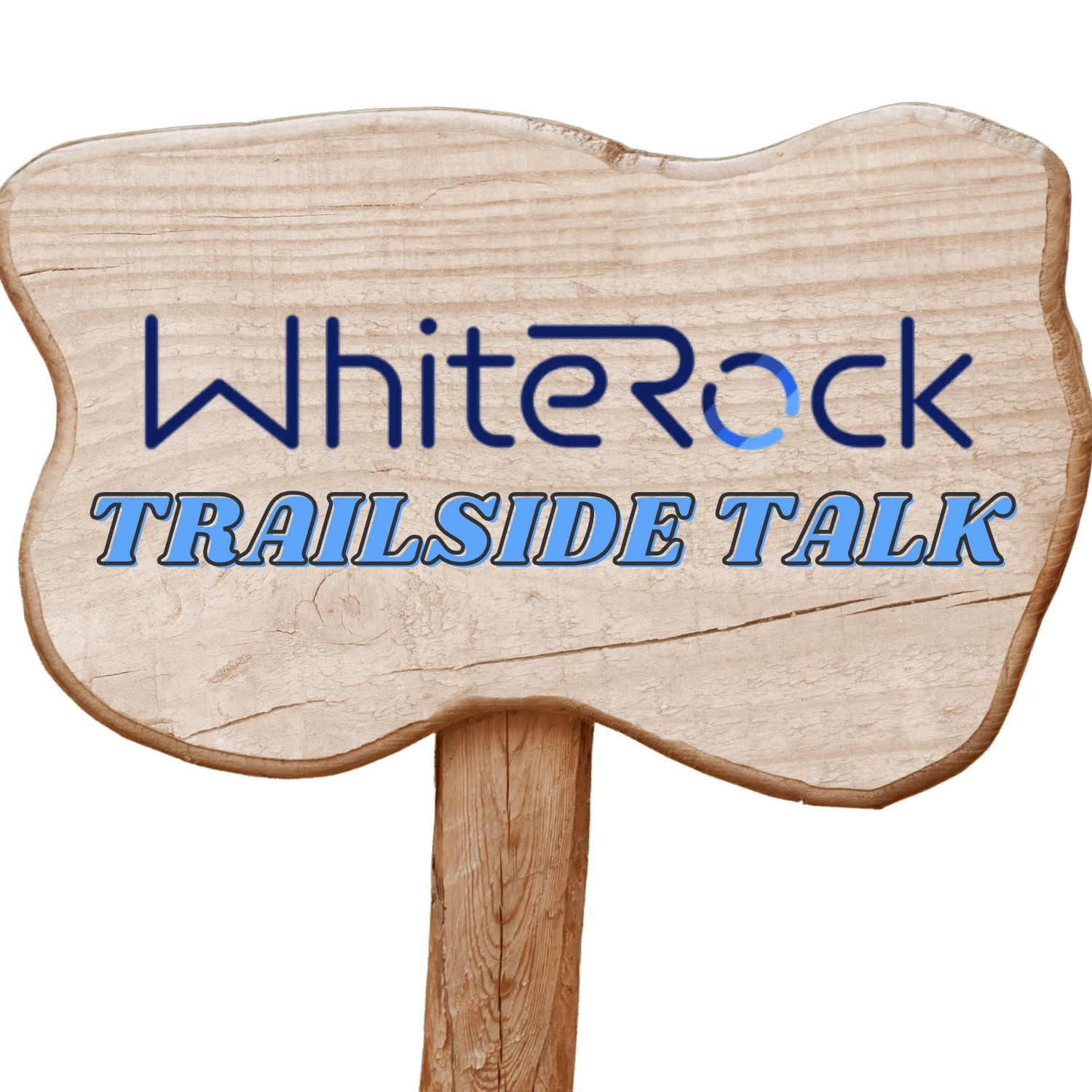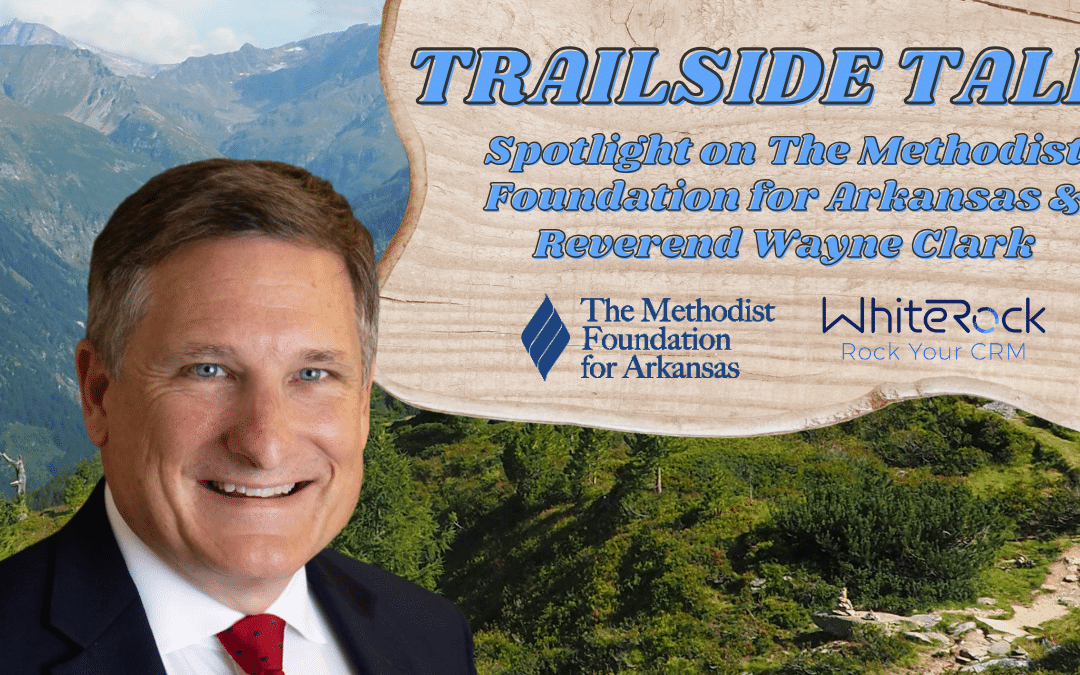
Creating Connections & Cultivating Knowledge: The Library at the Heart of Fayetteville
The latest episode of Trailside Talk features a conversation with Christina Karnatz, Director of Development for the Fayetteville Public Library Foundation. The Foundation acts as the philanthropic partner of the Fayetteville Public Library, raising and managing essential funds that help the library continue its mission of empowering the community through free and public access to knowledge.
A Lifelong Connection to the Library
Christina’s story is a testament to the lasting impact of libraries. Born and raised in Fayetteville, Arkansas, she grew up visiting the library with her mom for story time and to check out books so the library has always been part of her life.
After graduating from the University of Arkansas, she worked as a server, developing strong relationship-building and multitasking skills. Recognizing these strengths, her stepfather suggested she explore a career in fundraising. That suggestion led her to her current role, where she combines her love for the library with her passion for connecting with others.
The Evolving Role of the Library
The Fayetteville Public Library has grown significantly over the years, expanding its offerings far beyond traditional books. Today, it provides an extensive range of resources including its Center for Innovation which features photography, recording, and video studios and many other spaces for artistic endeavors and technical skill-building.
One particularly notable initiative is FPL on Wheels, a mobile bookmobile that brings library services directly to the community. “The goal with the bookmobile is to take the library out to where the people are,” Christina explained.
The mobile library visits housing complexes, senior centers, and parks, removing barriers to access and bringing services to the community. This initiative, made possible through grant funding, is a shining example of how libraries can extend their reach and make a tangible difference in the community.
A Successful Expansion and a Bright Future
A major milestone for the library was the completion of its 100,000-square-foot expansion in 2021. Christina and her team led a successful capital campaign, raising the necessary funds to support the project. In November of last year, the final $2 million gift was secured, marking the end of the campaign and the beginning of a new chapter for the library. “Now that we’ve completed the capital campaign and paid off the expansion, we can celebrate that success and focus on what’s next for the library,” she said.
Looking ahead to 2025, the Foundation is focused on community events and donor engagement. The library will host its third annual indoor mini-golf fundraiser on April 12th, inviting adults to enjoy a whimsical round of mini-golf throughout the library’s youth area. Additionally, bestselling author Amor Towles will visit the Fayetteville Public Library for a discussion and book signing on June 5th as part of the library’s commitment to bringing celebrated authors to the community.
Leveraging Salesforce for Impact
An aspect of the Foundation’s success is its use of Salesforce, implemented and supported by WhiteRock. The platform serves as the Foundation’s donor relationship management (CRM) system, streamlining campaign management, tracking grants, and enhancing donor communication.
“We can easily tag a gift and be able to reference that there,” Christina notes. “It is a really great tool to allow us to track our interactions with donors.”
WhiteRock: A Partner in Progress
Transitioning to Salesforce was no small task. “Without WhiteRock, I wouldn’t have known what to do with integrating from our old CRM to Salesforce,” Christina shared. WhiteRock has supported the Foundation by enhancing data accuracy and streamlining reconciliation processes, particularly through Salesforce’s integration with Sage Intacct.
With Salesforce in place, tasks like sending donor letters that once required tedious manual effort are now automated, saving time and ensuring consistent outreach. Christina also explained that “improving those systems cuts back on the amount of time that we are spending behind a computer instead of being out and about building relationships.”
Managing Change with Confidence
When asked about her approach to managing change, Christina emphasized the importance of preparation and clear communication.
“Change is inevitable. Plan as much as you can for what you may or may not know,” she said. “Focus on what you can control. As a leader in the organization, try to provide as much information to your team as possible.”
Advice for Nonprofits
For nonprofits considering a Salesforce partner, Christina’s advice is clear: “It’s really important that your cultures sort of match, that they have an understanding of the nonprofit world and care about the community.” She also encouraged development professionals to lean into relationship building—not only with donors but also with internal staff and external partners.
“Fundraising is all about relationships and having a CRM that tracks all of that so you can really nurture your relationships is very important,” she advised.
A Lasting Impact
As we wrapped up, Christina encouraged listeners to explore their local libraries and discover the wealth of resources available. Libraries are vibrant community hubs that offer innovation, learning opportunities, and cultural experiences.
From the expansion of the Fayetteville Public Library to the success of its FPL on Wheels initiative, Christina and her team’s dedication to their community shines through. As the Foundation’s Salesforce partner, WhiteRock is honored to play a role in supporting the Foundation’s mission and the continued growth and success of the library.
To learn more about the Fayetteville Public Library, visit faylib.org. Be sure to tune into this full episode of Trailside Talk for more details on how philanthropy, innovation, and technology are helping shape the future of the library.

WhiteRock’s Trailside Talk podcast program shines a light on organizations that are leveraging Salesforce in powerful ways to better serve their communities.



